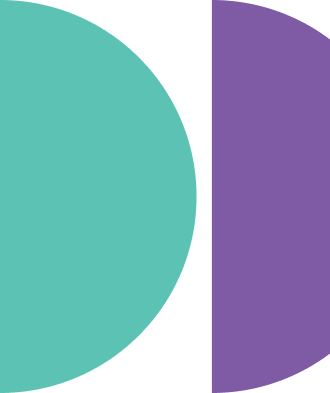From September 10-12, Aequilibrium was honored to participate in ITEA’s Project Outline Preparation Days (ITEA PO Days) in Antwerp. ITEA, which stands for Information Technology for European Advancement, is a strategic research and innovation program within the broader Eureka network. Eureka is a European initiative that supports international R&D and innovation projects across various sectors. ITEA is a key program under Eureka, advancing software innovation and digital transition. This prestigious event is essential for launching new projects and building global software and digital technology partnerships.
We were particularly privileged to participate and represent Canada at this event, which was supported by the National Research Council of Canada Industrial Research Assistance Program (NRC IRAP). NRC IRAP, which manages Canada’s Eureka National Office, connects Canadian innovators with Eureka’s extensive global network, reinforcing Canada’s position in the international research and development (R&D) landscape.

Welcoming the Canadian delegation
The week began with a networking event for the Canadian delegation. The morning session allowed each delegate to introduce themselves, providing an excellent opportunity for us to connect with other Canadian participants and showcase Aequilibrium’s role in the global Artificial Intelligence (AI) ecosystem. It was a fantastic start to the event, meeting and engaging with various companies and innovators, laying the groundwork for fruitful collaborations.
Innovation showcase – highlighting the top 2023 ITEA projects
In the afternoon, the ITEA event shifted focus to highlight the 2023-funded programs. This showcase included three Excellence Award-winning projects—two featuring Canadian companies, Inno4Health and SMART. The vibrant display, complete with tall banners, underscored the innovative initiatives driving progress in the industry.

Workshops and Networking
Throughout the week, we participated (and led) in workshops and demos, including sessions on L4S scalable throughput and the use of Generative AI in software development. We also had the opportunity to showcase AEQ’s innovative solution that harnesses the power of AI and virtual reality (VR) to create immersive, interactive, and personalized experiences to enhance soft and hard skills training.
Our project proposal was very well received: we received thirty requests to join our project as a partner, coming from small and large companies, as well as many universities, from countries like Canada, Netherlands, Belgium, Turkey, Germany, and Letonia. Additionally, we engaged in dynamic networking and conducted two workshops to align interested partners and foster collaboration. This was a pivotal moment for building international connections and advancing the integration of VR and AI within the global tech community to drive meaningful impact at scale by leverage research and innovation through international collaboration among many countries and institutions.

Insights from Nokia Bell Labs
Thursday afternoon’s session shed light on Nokia Bell Labs’ strategic approach to research and collaboration. Ingrid Van De Voorde highlighted the importance of external collaboration, stating it is the “core to our research model. We work with research consortia, global student programs, and distinguished academic partners to drive innovation and leverage local ecosystems.” She detailed how Nokia engages in projects like Horizon Europe, aimed at defining 6G standards, and how collaborations help shape future technologies.
Jos Van Sas emphasized Nokia Bell Labs’ systematic approach to selecting and investing in projects. “We use a portfolio approach, balancing breakthrough projects like quantum computing with more immediate platform and business-driven projects. This strategy helps us address both long-term and short-term needs effectively.”
He also discussed the importance of standards and industry-wide collaboration. “Standardization is crucial; you cannot afford disparate mobile standards for different regions. Broad consortia are essential for setting industry-wide standards, and we often participate in projects with competitors and global partners to achieve this.”

Exploring AI and Canada’s Strategic Role
On the final day of our visit, we began with an insightful tour of FARI (AI for Common Good Institute) in Brussels. Karen Boers, FARI’s Managing Director, delivered an engaging presentation on their innovative work in AI, followed by a tour of their state-of-the-art facilities. Later, thanks to Pieter Embo, we had the opportunity to explore the dynamic sectors of EdTech and XR. Our visit to Kurtrik included meetings with station master Thomas Van Cauwenberghe from the EdTech Station. Afterward, Jelle Demanet, from the Belgian XR Ecosystem, provided a deep dive into these rapidly evolving fields.

Forging international partnerships to drive meaningful change
The ITEA event highlighted Canada’s pivotal role in the global AI landscape. Canada’s AI ecosystem is robust and growing, with over 1,500 AI firms, 20 public research labs, and 75 incubators and accelerators. Significant investments, including the recent $2.4 billion commitment in the Budget 2024, are set to bolster AI infrastructure, promote responsible AI use, and drive economic growth. Canada’s impressive 3% share of the world’s top AI researchers and notable advancements in talent and patent filings underscore its position as a leader in AI innovation. The international interest in the AEQ’s innovative solutions further emphasizes Canada’s growing influence and dedication to advancing AI globally.
Aequilibrium’s invitation to the ITEA Project Outline Preparation Days has helped pave the way for meaningful collaborations that will help shape the future of digital innovation. We demonstrated our commitment to leveraging cutting-edge technologies like AI and VR to drive productivity and skill development through our engagement with international partners, workshops, and showcases. As we progress, the connections and insights gained from this event will play a crucial role in advancing Aequilibrium’s mission of bridging the productivity gap in Canada while contributing to the global tech community.
If you are part of the ITEA program, please get in touch, as we are still open to bring in partners to join our project idea, including SMEs interested in XR, AI, and Cloud, enterprises like Telus Health and Microsoft, or medical shools and hospitals like UBC and University of Toronto!
Alternatively, if you are interested in partnering on other R&D initiatives check out our website for the type of services and clients we supported in using digital transformation and innovation. Then contact us to discuss how to create immersive experiences for their staff and customers, become more resilient, and grow!





